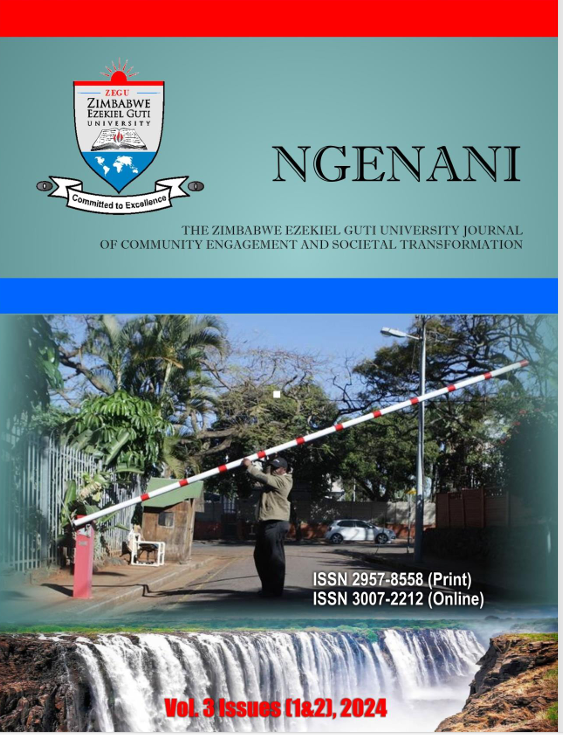An Evaluation of Training and Development Strategies on the Performance of the Manufacturing Small-To-Medium Enterprises in Mashonaland West Zimbabwe
DOI:
https://doi.org/10.71458/bwns9342Keywords:
training, development, manufacturing, enterprisesAbstract
Small and Medium Enterprises (SMEs) within the Zimbabwean manufacturing sector play a pivotal role in the nation's economic growth. This study critically investigates the role of training and development programmes to enhance the performance of manufacturing SMEs in Mashonaland West Province. The study was underpinned by pragmatism research philosophy. Structured questionnaires and structured interview guides were used to collect quantitative and qualitative data from 80 respondents. Quantitative data were analysed using descriptive statistics and correlations while qualitative data were analysed using NVivo. The main study findings establish that there is a positive relationship between training and development and performance of manufacturing SMEs. Study findings show that in the rapidly evolving business landscape, maintaining a competitive edge requires continuous investment in upskilling and reskilling the workforce. The study establishes that in the manufacturing sector, where innovation is a key driver of success, training and development can foster a culture of continuous improvement and adaptability. This can lead to the development of new products, processes, or business models, ultimately enhancing the competitiveness of the organisation. The study revealed that investing in training and development demonstrates an organisation's commitment to its employee that can positively impact employee engagement, morale and retention. Well-trained and empowered employees are more likely to feel valued, contributing to higher job satisfaction and reduced turnover rates. Retaining skilled and experienced personnel is crucial for maintaining institutional knowledge and driving continuous improvements within manufacturing SMEs. The recommendations proffered by the study are that manufacturing SMEs should adopt a strategic, data-driven approach. This includes assessing skill gaps, aligning training objectives with business goals and continuously evaluating the impact of training initiatives on key performance indicators. By investing in the training and development of their workforce, manufacturing SMEs can enhance productivity, foster innovation, improve employee engagement and ultimately strengthen their overall competitiveness in the market.




